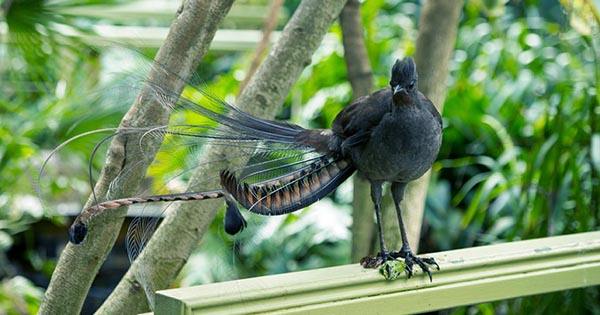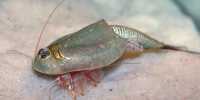As proven by a slightly ear-splitting new video, a seven-year-old male lyrebird at Sydney’s Taronga Zoo has perfected his impression of a screaming human baby. Echo, as the name suggests, can be heard imitating the screams of a worried human newborn in the clip.
The superb lyrebird, which is native to central and eastern Australia, is a well-known impressionist and one of nature’s best mimics. In the wild, the birds routinely mimic other species’ songs as well as other forest sounds, though they typically learn their auditory repertoire from older lyrebirds rather than directly parroting the noises they hear.
Camera shutters and chainsaws are among the most intriguing recorded cases of captive lyrebirds basing their cries on manmade sounds. After observing the construction of a new panda cage at Adelaide Zoo, a famous lyrebird named Chook is believed to have created an astounding diversity of power tool noises. Echo began imitating a baby’s cry last year, according to Leanne Golebiowski, the unit supervisor for birds at Taronga Zoo. “It would be difficult for these birds not to duplicate some of the sounds they would hear in a zoo setting,” she said, citing the number of sounds they would hear.
“I can only presume he got it from one of our visitors.”
Echo routinely imitates the sound of a power drill and the zoo’s fire alarm, in addition to the cry of a baby. Golebiowski remarks, “He even has the ‘evacuate now’ statement down pat.”
While both male and female lyrebirds are capable of imitating a wide range of sounds, males are far louder, especially during the breeding season. Although it is thought that bird mimicry serves a variety of reasons, many of which are unknown, these borrowed cries are thought to play a role in courtship.
Lyrebirds have their own natural call, which is described as “mechanical” and consists of a sequence of whirring, clicking, and grinding sounds in addition to their remarkable library of impressions.
Lyrebirds, according to Golebiowski, practice new sounds before determining whether or not to include them in their regular repertory. “I’m not sure what it is about the baby weeping that [Echo] finds fascinating or engaging, but I’m hoping it won’t make the final cut,” she says.















